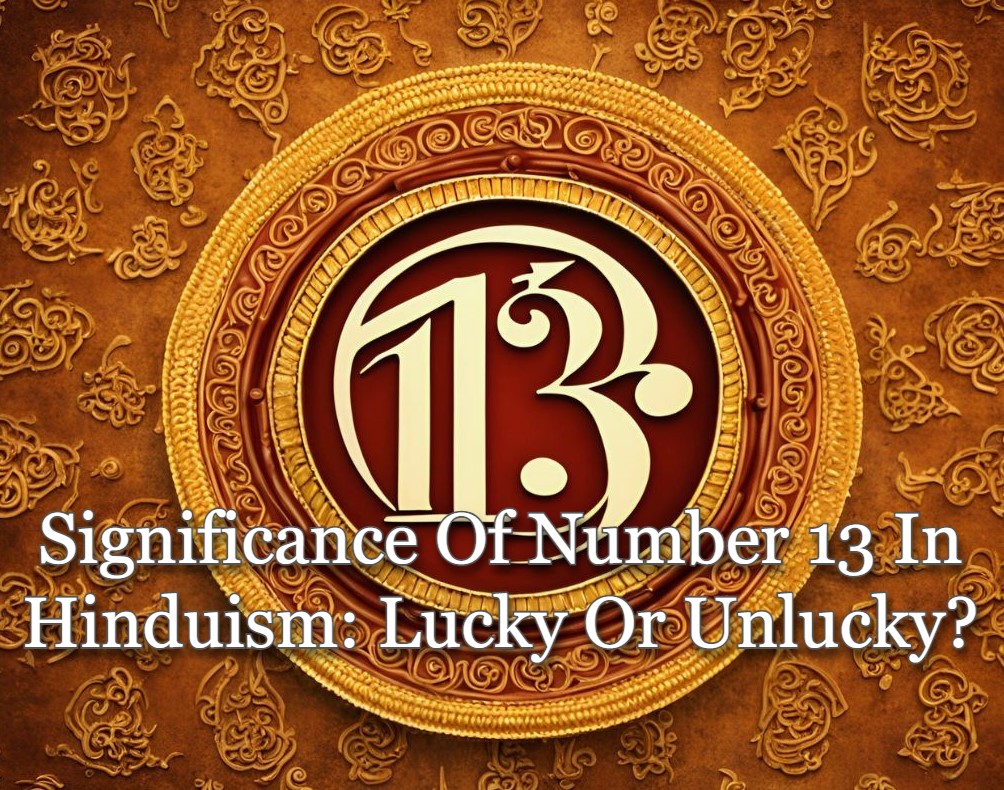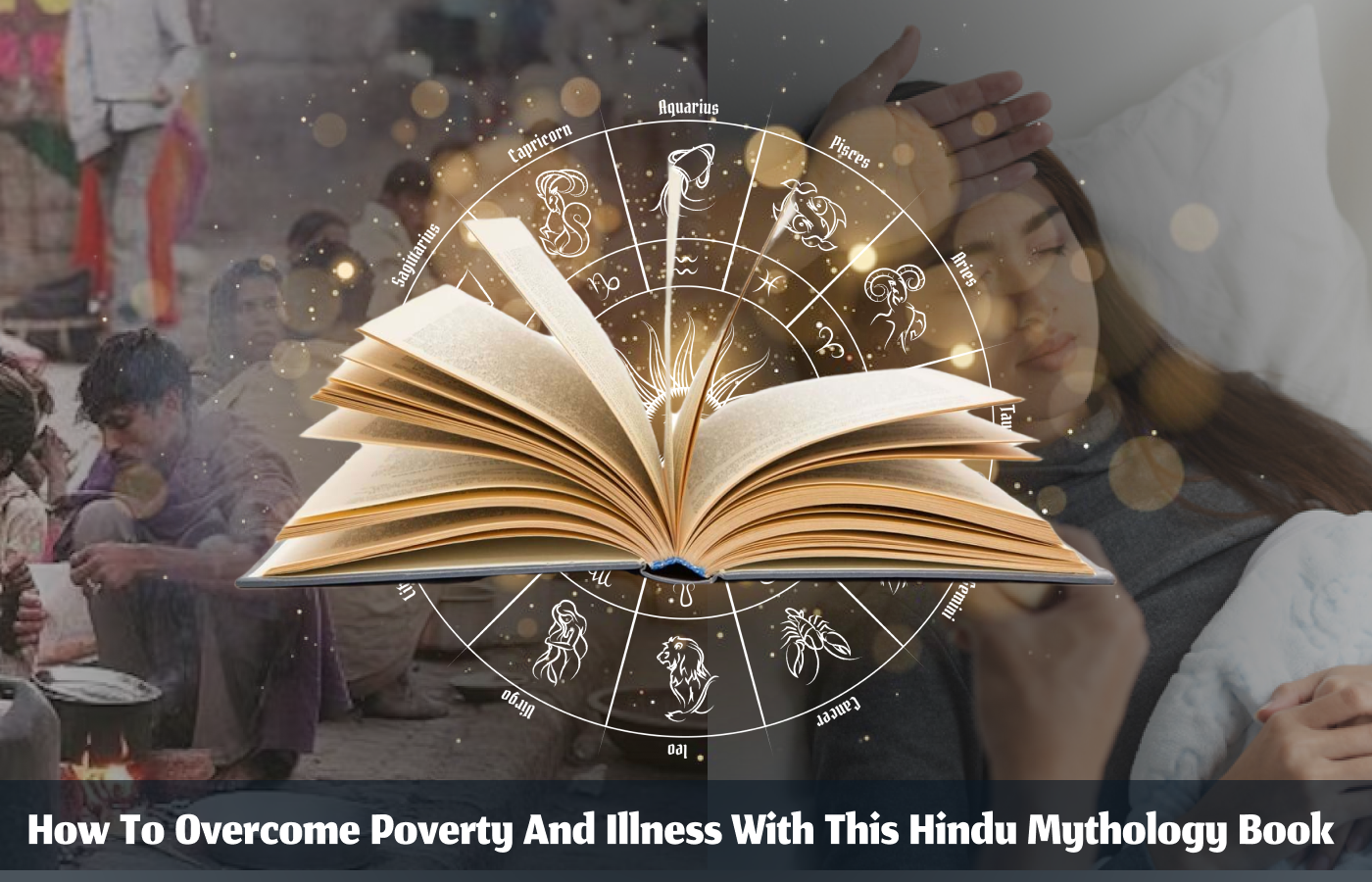How Lucky or Unlucky is Number 13 in Hindu Culture?

Did you ever feel horrified at facing something unfortunate when you had to encounter the number 13? Is it an Indian or Hindu concept? Or is it something to do with some other culture?
We have seen cities, hotels, residential or commercial societies, hospitals, and many more places skipping the number 13 while naming or numbering their sectors, rooms, floors or beds. Some even do not have 13 letters in their names. In sports, too, people avoid jersey number 13. In normal households, 13 people never sit at a table.
What is the proof that the number 13 is unlucky? Or is it just superstition?
In this blog, we will try to understand the significance of the number 13 in Hinduism. Then we can conclude whether it is unlucky or not.
What Is The Meaning Of The Number 13 In Hinduism?
In Hindu dharma or culture, number 13 of the month is considered auspicious and dedicated to Bhagwan Shiva. The 13th day of every month is known as Trayodashi. On this Trayodashi day, the Pradosh Vrat is observed, which is believed to bring luck, happiness, prosperity and success.
Also, Maha Shivratri, the festival that is observed to celebrate the union of Shiva and Parvati, is observed on the 13th night of the Magha month. Thus, as per Hindu belief, the number 13 is very auspicious.
The number 13 concept is actually a Western concept and the origin of it was in Christianity, when Judas — the apostle who betrayed Jesus — was the 13th guest at the Last Supper. Similarly, in Norse mythology, the god Loki was the 13th to arrive at a feast in Valhalla, where he tricked another attendee into killing the god Baldur.
5 Reasons Why Number 13 Is Unlucky
1. Number Of Witches
In the western world, centuries ago, witchcraft was practiced for the evil purposes of harming people, which led to an immense fear of witches among common people. It is believed that a coven of witches had 13 members. This was spread across and slowly people started associating the number 13 with unfortunate events.
2. Biblical References
The Bible has many stories that are interpreted in different ways. The 13th Psalm of this Holy Book is full of stories related to evil and corruption. So, people started associating the number 13 with tragic and evil circumstances.
3. A Day Of Execution
King Philip IV of France owed a debt to the Knights Templar, the guardians of the Holy Grail. After losing a battle to England, he betrayed the Knights Templar and joined forces with Pope Clement V to have them arrested.
The execution of the Knight Templars began on the 13th day of the month. Thus, people started associating the number with an inauspicious event.
Therefore, the above are some of the myths that led to the belief of number 13 as the unlucky number in Western culture and should be avoided by all means. Triskaidekaphobia is the word referring to the fear of the number 13, and it is so common that people even avoid using words with 13 letters.
However, here are 8 reasons in Hindu belief and culture that make number 13 lucky and auspicious.
8 Reasons Why Number 13 Is Lucky
1. New Beginnings And Prosperity
According to Hindu beliefs, the number 13 is considered very auspicious. Popular belief is that number 13 brings opportunities and success.
2. Indication Of Karma
According to Indian numerology, the number 13 is closely associated with the wheels of karma. There, people who have lived a life full of good karma have nothing to worry about. However, the same is not true for those who have committed sins. For sinners, number 13 can be unfortunate, and number 13 will be instrumental in bringing them on the right path.
3. Day Of Bhagwan Shiva
The 13th day of the month is called Trayodashi, which is dedicated to Bhagwan Shiva. His devotees worship him and seek his blessings. This is why the number 13 in Hinduism is considered lucky and sacred.
4. Number 13 in Jainism
Bhagwan Mahavir Jain was born on the 13th day of the Hindu calendar month of Chaitra.
5. Inner Feminine Strength
As per Hindu belief, the number 13 is also associated with the divine energy of the feminine goddesses. Therefore, if you encounter this number more often than normal, it is indicating you connect with your inner feminine strength.
6. Closely Related To Life
No one can deny the connection between the number 13 and the universe. The moon goes through 13 phases before completing its cycle. Additionally, almost all seasons cover about 13 weeks before moving on to the next season. Also, we cannot skip the age of 13, and the 13th year is a crucial time in a human life as one moves into their teen years from childhood.
7. Redemption From Sins
There is a popular belief in Hindu culture that if one observes a fast on the 13th day of every month, he or she is able to cleanse all their past sins. Thus, the number 13 is also closely related to absolution from sin.
8. 13-day funeral rites
In Hinduism, the 13-day funeral rites hold great significance as a period of remembrance, mourning, and spiritual rituals for the departed soul. These 13 days of rituals allow the grieving family to find peace, honour their loved ones, and seek spiritual guidance. It is the time for emotional healing for the grieving family. On the 13 days, the soul is believed to have reached a better place when the family can go back to their normal life. It is a process to give peace to the soul and build a positive attitude towards life.
9. 13 diyas are Lit during Diwali
According to Hindu belief, 13 diyas are lit in the house during Diwali and people pray for good health and prosperity during Diwali and Dhanteras. 13 diyas are also believed to protect family members from negative energies and bad spirits. These diyas also signify kindness and purity. Most importantly, the number 13 is considered one of the auspicious numbers, as per Hindu culture.
As a result of several years of superstition, the number 13 has been widely regarded as unlucky in Western culture. However, the number 13 in Hinduism holds significant meaning and is also considered extremely auspicious. Not only does it hold relevance to divine beings, but also to pious and spiritual occasions.
Frequently Asked Questions
Q: Does number 13 bring bad luck?
A: The concept of number 13 bringing bad luck comes from Western culture, and is considered a superstition.
Q: What is the significance of number 13 in Hindu culture?
A: Number 13 is very auspicious in Hindu culture, due to its association with Bhagwan Shiva and Prabhu Ram.
Q: What is the secret behind number 13?
A: Fear of number 13 is actually a Western concept. It originated from the day when, in Christianity, Judas—the apostle who betrayed Jesus—was the 13th guest at the Last Supper. Similarly, in Norse mythology, Loki, the mischievous god, was the thirteenth to arrive at a grand feast in Valhalla. There, he cunningly tricked another attendee into killing the beloved god, Baldur.
To learn more about numbers and their association with human life, you can talk to our expert numerologists at NamoAstro.









